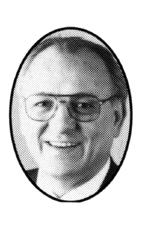Mr. Speaker, a national aboriginal recognition day was passed by the assembly in Quebec in 1990. It has been requested by the Assembly of First Nations and by spiritual leaders. It has been pushed by private members of the NDP, by our member from Red Sucker and two weeks ago by the executive committee of the Canadian Federation of Municipalities.
These people are looking for a day of recognition, a day celebrating the aboriginal ties to the land. The challenge to the government is whether it is prepared to do it from sea to sea to sea. I am pleased to advise the House and members that the caucus, the cabinet and the government have reflected on this.
The Prime Minister will be proclaiming very shortly that there will be a national aboriginal day. It will be at the summer solstice, June 21 of each and every year. It will be a celebration of the spiritual ties of the aboriginal people, a recognition of them as our neighbours. Hopefully it will lead to a better future for all of us in Canada.

